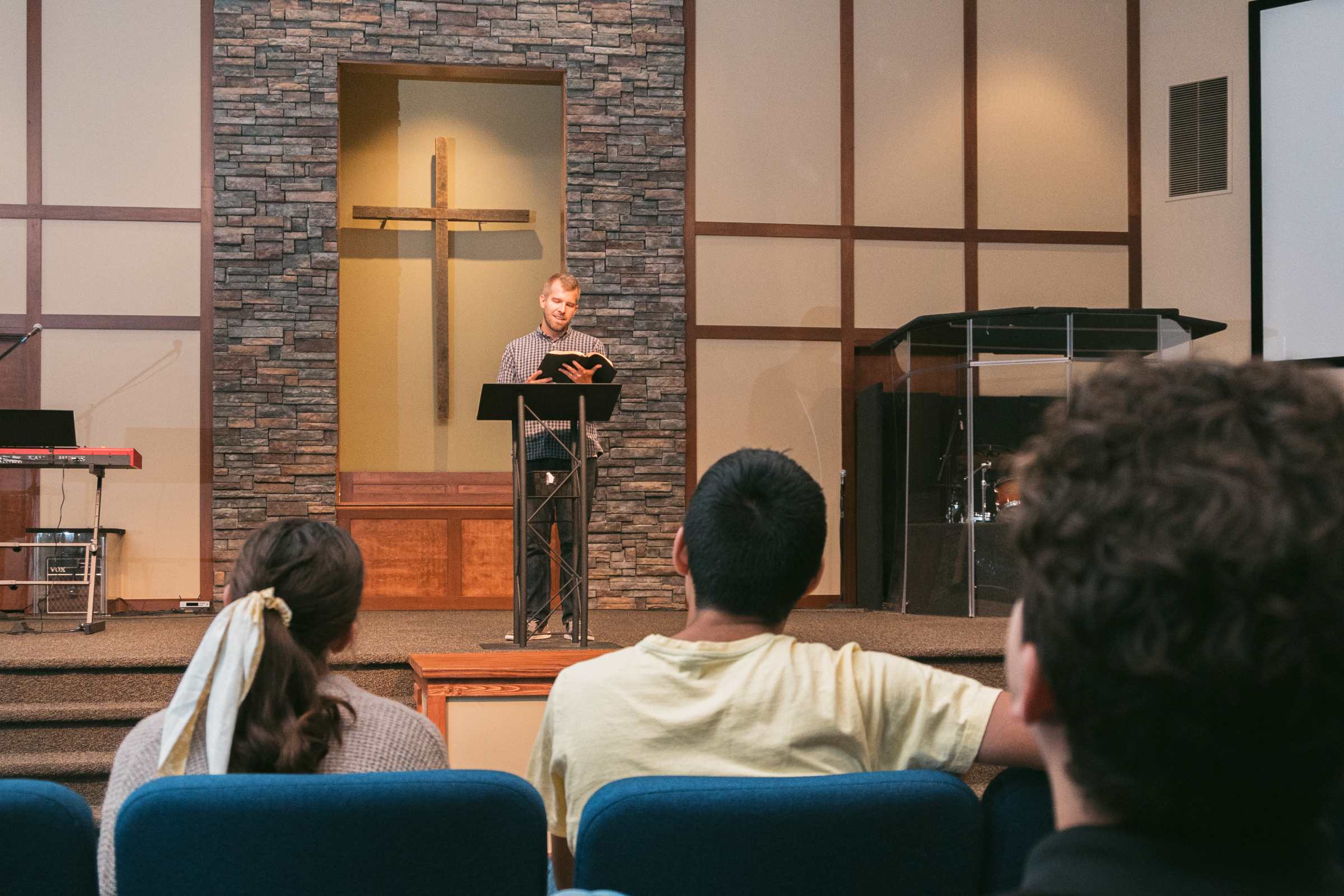September 29, 2022
Exegesis vs Eisegesis: How Should We Approach the Bible?
Written By Grace Theological Seminary
Tagged With Preaching & Pastoring Master of Divinity Master of Arts

God gave the Bible to humanity as a gift so we could learn about His character and the human condition. As our Basic Instructions Before Leaving Earth, we are called to study its contents and heed its teachings. While we can certainly do this study on our own, Christians often benefit from a minister or theologian presenting the Biblical text to them with suggestions for application. The most common place this happens is in the church, where God’s people worship together and hear from the Word. One of the jobs of a pastor is to help congregants have a greater understanding of the Word, and part of that means teaching the Bible accurately.
What method should a pastor use to ensure he is teaching the text accurately? Over the centuries, seminaries have taught their students to exegete the passage. Exegetical preaching is when the pastor looks for the author’s original message as they read through a passage. In recent decades, a new type of preaching, eisegesis, has cropped up in churches all over the world. Eisegetical preaching is when the preacher reads their own ideas into the text, thus ensuring that they find what they are looking for in a passage of Scripture.
As a ministry leader, you are called to present God’s Word with its original context, nuances, and meaning at hand. In the question of exegesis vs eisegesis, We believe that exegesis is the most accurate method of approaching, researching, teaching, and applying the Bible.
Reading: Looking at the Text
One of the first things to consider in discussing exegesis vs eisegesis is the basic principle of reading. When children practice reading comprehension, they are to answer questions based on what the passage says, as opposed to the child’s own thoughts. Adults follow this rule with everything from recipes to song lyrics. The same respect should be given to the Biblical text, which is far greater than any human-produced book. The Author of the world gave us a manual, and we must read it with the goal of understanding what He meant to tell us about living on the earth.
The Bible is a nonfiction collection of 66 books that is divided into an Old Testament and a New Testament. 2 Timothy 3:16-17 reveals God’s purpose for giving us the Bible, “All Scripture is breathed out by God and profitable for teaching, for reproof, for correction, and for training in righteousness, that the man of God may be complete, equipped for every good work.” Here, Paul is saying that Scripture by itself, without any additions from the mind of man, is profitable for humanity to learn from. The Bible is already complete, there is no need to read anything into it.
What does exegesis mean when reading Scripture? Here are a few steps to take to begin the exegetical process:
- Start with prayer. Ask the Lord to clear your mind of any preconceived notions about the passage and the ability to read it for what it is.
- Read the passage slowly and out loud at least once. Just focus on what the passage says, without making any notes. This step is meant to help familiarize you with what the words say.
- Finally, look at the surrounding context. Read the passage with the 2-3 verses prior to and after the passage to get an idea of how the passage fits into the verses around it. Look for transitions and negating words, and notice if concepts are repeated.
Research: Digging into the Text
The next thing to consider in the question of exegesis vs eisegesis is research methods. In college and seminary settings, students are required to do extensive research in preparation for writing papers and making speeches. These resources are often peer-edited and approved for publication by a team of people. When researching for an important paper, it would be unprofessional for a student to write using their own thoughts and presuppositions when there are so many great resources available to them.
The same is true of the Bible. There are thousands of published commentaries and books that are meant to help a pastor get to the bottom of what a passage of Scripture is saying. 2 Timothy 2:15 says, “Do your best to present yourself to God as one approved, a worker who has no need to be ashamed, rightly handling the word of truth.” Part of rightly handling God’s Word is to look into the original context and original languages so that the text is rightly understood and properly applied. In order to properly explain the Bible, pastors need to put in the time and effort to understand the original context and what the author meant to say.
What does exegesis mean when researching about Scripture? Here are some types of resources that should be consulted:
- Commentaries provide verse-by-verse explanation of what the author is trying to say using historical context. There are commentaries that cover the whole Bible and others that focus on one specific book.
- Concordances and Lexicons focus on how the original language translates to English and how words are used in different parts of Scripture. This resource is excellent for preachers wanting to provide a mini word study.
Relevancy: Talking about the Text
Lastly, those engaging in the exegesis vs eisegesis question should consider how people normally share information they find interesting. Many people, when they read or see something that strikes them as profound, proceed to tell their family and friends about it. They’ll usually give the basic premise and then repeat what they were specifically struck by. This sharing of information is natural because we want those close to us to understand what we find fascinating.
After reading and researching a Biblical passage, pastors must share the relevance for those who are listening to the sermon. These points usually come in the form of applications, which are principles or practices that the listener should be ready to implement after hearing the sermon. James 1:23-24 says, “For if anyone is a hearer of the word and not a doer, he is like a man who looks intently at his natural face in a mirror. For he looks at himself and goes away and at once forgets what he looks like.” Part of acting on what the text says is having a solid foundation for why the person should listen to it. This comes from solid research and careful consideration, as opposed to saying what the audience would want to hear.
What does exegesis mean when applying Scripture to life? Here are some steps to begin applying a Scripture passage:
- Begin by understanding how the original hearers would have applied the passage. What action steps would they have taken in their context? Was it written for a specific group or all people? What cultural practices/traditions come into play?
- Next, consider what practices/social norms today are equivalent to the original context. What would be as impactful and relevant to today’s hearers as it was to the original audience? What is the universal, time-transcending issue that might present itself a bit differently in the current culture?
- Finally, find an illustration that could help get the point across. What image will stick in the minds of listeners and support what the Scripture says?
A Deeper Dive into Exegesis vs Eisegesis
So what is the difference between exegesis vs eisegesis? We believe that exegesis is the method pastors should use as they prepare to preach a message. The Bible is a treasure trove of information just waiting to be discovered and taught to the body of Christ, and we need men and women in ministry who desire to transmit God’s heart, character, and message to their listeners rather than plucking passages of Scripture that fit their agendas.
Here at Grace Seminary, we offer a wide variety of programs that help church leaders further understand the difference between exegesis vs eisegesis. Deploy is our online seminary program that allows you to get your education while continuing to work in ministry. Our Accelerated Program allows current undergraduate students to complete their bachelor’s and master’s degree together in four or five years. For the traditional student, we have a Residential Program that allows you to interact with professors face-to-face and serve in the Winona Lake area. No matter what stage of life you are in, we want to help equip you with the skills necessary for successful ministry.
Apply today and get the seminary education that you’ve been looking for!
Share
Tagged With Preaching & Pastoring Master of Divinity Master of Arts


